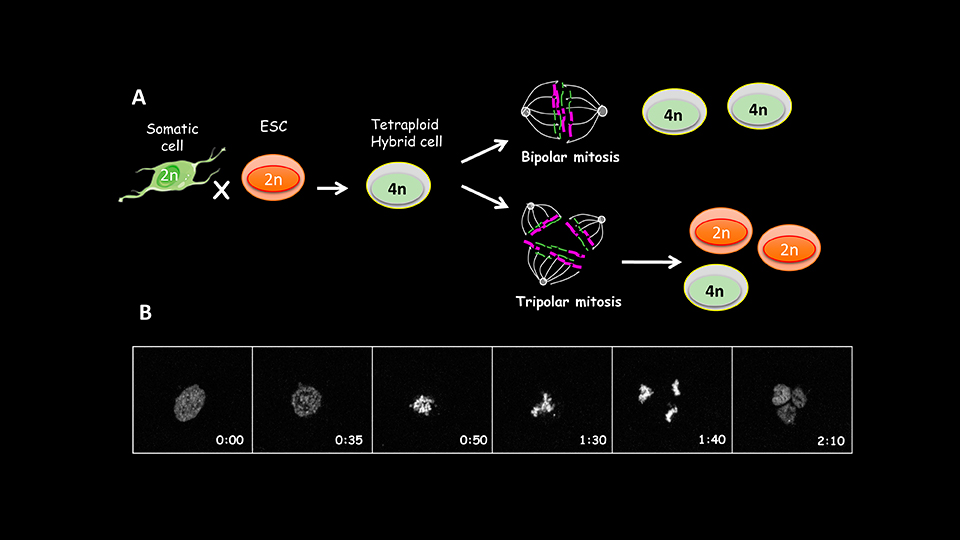Cells with high ploidy content, i.e with increased number of chromosomes, are common in mammalian adult tissues. Cell-to-cell fusion generates polyploid cells during mammalian development and tissue regeneration. However, whether increased ploidy can be occasionally tolerated during embryogenesis still remains largely unknown. We showed that tetraploid cells, when injected in a recipient mouse embryo, can generate diploid cells upon tripolar mitosis reduction. The generated diploid cells include the correct number of chromosomes and form part of the adult tissues in mouse. Overall, we discovered an unexpected process of controlled genome reduction generating diploid cells during mouse embryo development.
Reference
